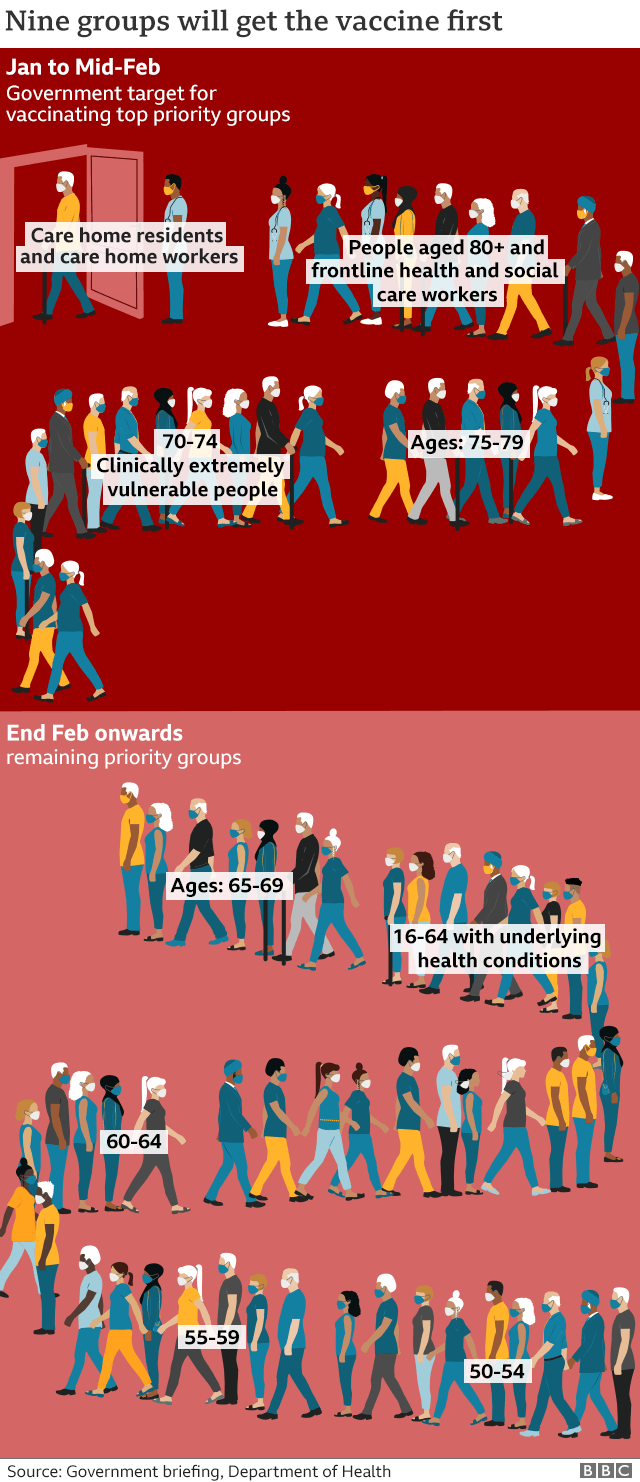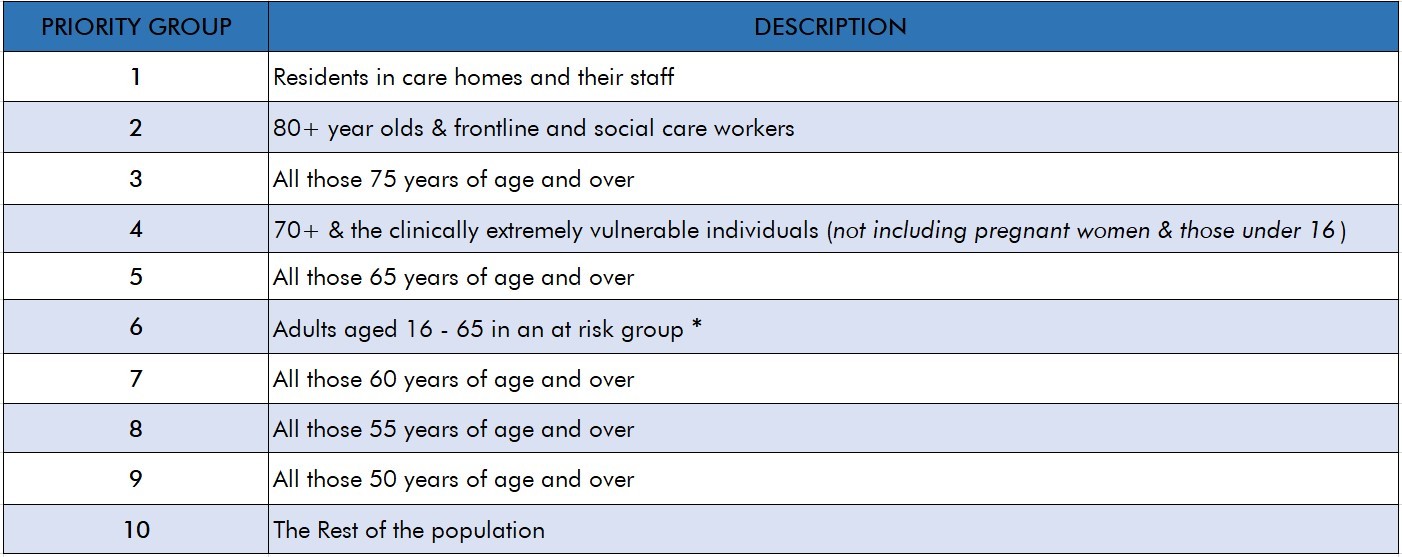The UK has launched its largest mass-vaccination program recently. The focus on protecting millions of people from COVI-19 with months.
It’s a race!
A race against the faster-spreading strain of the virus and we have a number of obstacles in our way. We face issues with the overall supply and demand of the vaccine, the sheer number of safety checks and deep-freeze storage needed as well as keeping up with the need for vaccination centers and staff to operate them.
The government plans to offer 15 million people the vaccines (the over ’70s, healthcare workers) by mid-February. Those over 50 and other priority groups will be vaccinated by Spring. By Autumn, the rest of the adult population will be offered the vaccine where there is a possibility of further prioritising. This would include front-line workers such as the police, the fire service, and teachers.
Priority Groups: Finding Yours
* At-risk Groups:
- A blood cancer (such as leukemia, lymphoma, or myeloma)
- Diabetes
- Dementia
- A heart problem
- Chest complaint or breathing difficulties (including bronchitis, emphysema, or severe asthma)
- Kidney disease
- Liver disease
- Lowered immunity due to disease or treatment (such as HIV infection steroid medication, chemotherapy, or radiotherapy)
- Rheumatoid arthritis, lupus, or psoriasis (who require long term immunosuppressive treatments)
- Have had an organ transplant
How Do I Know When To Go For My Vaccine?
Right now the NHS is sending out letters to those who are eligible to receive the vaccine. Once you have received your letter, you are then free to book your vaccination appointment.
Those who are receiving letters now are:
- 80+ years of age
- 70+ years of age
- People who are at high risk
Once you have received your letter you can click here to make your appointment.
You will need to:
- Have 2 does of the vaccine – that means you will have 2 appointments
- When booking your appointment, make sure you book both appointments – this saves a lot of time
The Appointment:
Ono average, the appointment will take between 30-45 minutes from start to finish.
- You will be checked in using your booking reference numbers
- Asked questions about your medical history
- Be vaccinated
Where Do I Go For My Vaccine?
Vaccinations will be distributed in 3 main ways:
- At your Doctors office and in community pharmacies
- Mass vaccination sites that are across the country
- Within Hospital hubs
How Effective Is The Vaccine?
It is important to know that without the 2 doses of the vaccine you will not have long-lasting protection against COVID-19.
The first dose should give you protection against the virus. The second dose gives you longer-lasting protection.
NOTE: Getting the vaccine will not stop you from getting COVID-19 (like many other vaccinations) but what it does do is stop you from experiencing the more severe symptoms of the virus. Do be aware that the vaccine cannot stop you from spreading the virus so until told otherwise, follow COVID-19 safety regulations.
Are There Side Effects To The Vaccine?
Like most if not all medications and vaccinations there is a risk of side effects. However, before such things go to market they are all tested and approved with the strictest of standards. If side effects should happen after you have the vaccine, this is what you could possibly expect.
- A sore arm where you were injected
- You may feel tired
- You could get a headache
- Feel achy
- Possibly feel or be sick
You can take painkillers (like paracetamol) if you need to. These symptoms should not last more than a week.
If of course, the symptoms worsen, do not hesitate to call 111 – the new telephone service brought to you by the NHS.
Until you have received your letter, it is simply a waiting game and we are all in it together. There is nothing much we can do but follow restriction guidelines and pop on the kettle.
Do you or someone you know need an effortless way to make a cuppa at home? Feel free to check out our Uccello Kettle Here.















Leave a Comment